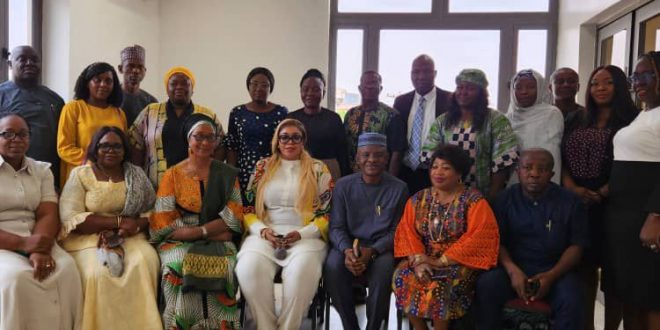In a landmark initiative poised to revolutionize Nigeria’s school feeding program, a powerful stakeholder commitment meeting set the stage for the commencement of the Value for Money (VFM) Research. Organized by the Office of the Senior Special Assistant to the President on School Feeding, in collaboration with esteemed partners including Imperial College London, Harvard University, and the Partnership for Childs Development, the meeting convened critical stakeholders from government ministries and international development organizations.
The two-day strategic meeting, held with unwavering commitment, saw high-level representatives from key ministries including Humanitarian Affairs and Poverty Alleviation, Health and Social Welfare, Education, Agriculture and Rural Development, and Budget and National Planning, alongside influential bodies like the Universal Basic Education Commission (UBEC).

A notable highlight of the gathering was the presence of various development partners, underscoring the collaborative nature of the endeavor. Organizations such as GAIN, PLAN FCDO, International Rescue Committee, USAID, and Maple Leaf Early Years Foundation lent their expertise and support, emphasizing the collective responsibility in advancing the school feeding program.

The primary objective of the meeting was to foster synergy between government entities and development partners to ensure the effective implementation of the VFM study in targeted states. Phase 1 of the initiative is set to commence in Kaduna and Osun, with full sponsorship provided by Imperial College London, further demonstrating the commitment of international institutions to support Nigeria’s education and nutrition initiatives.
Speaking at the event, representatives reiterated the significance of the VFM research in enhancing the efficiency and impact of the school feeding program. By evaluating the cost-effectiveness and outcomes of the program, stakeholders aim to optimize resource allocation, improve service delivery, and ultimately enhance the well-being of Nigerian schoolchildren.

As Nigeria continues to prioritize investments in education and nutrition, the collaborative efforts witnessed at the stakeholder commitment meeting signal a promising step towards achieving sustainable development goals and ensuring a brighter future for generations to come.
 Hottestgistnaija.com
Hottestgistnaija.com





